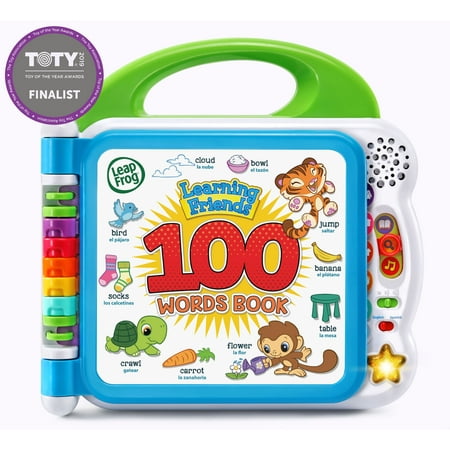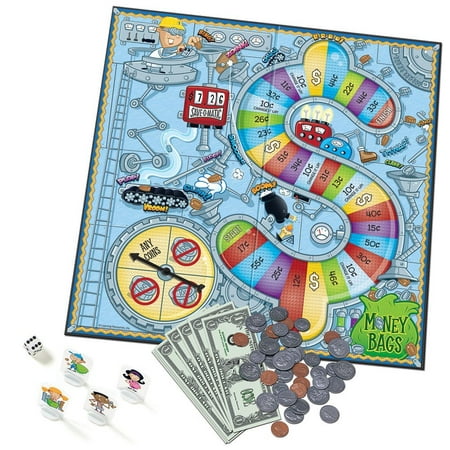Leapfrog Learning Friends 100 Words Bilingual Electronic Book
Join animal pals Turtle, Tiger and Monkey as they discover new vocabulary inside the Learning Friends a hundred Words Book. Explore the colourful pages and touch each image to listen the animals say infant-suitable words at the side of exciting data and sound effects. Immerse your child in bilingual play through sliding the language switch to pay attention the words, songs and instructions in Spanish. Touch the snap shots to listen stupid sound outcomes in Fun Sounds mode or press the light-up big name button to pay attention gaining knowledge of songs. Discover new vocabulary with adorable mastering friends! Intended for ages 18+ months. Requires 2 AA batteries. Batteries covered for demo purposes handiest. New batteries recommended for regular use.









Meet getting to know pals Turtle, Tiger and Monkey who will introduce greater than 100 age-appropriate phrases selected by way of gaining knowledge of expertsWord categories encompass: pets, animals, meals, mealtime, shades, sports, opposites, outdoor and moreTouching the phrases on the pages plays the phrases, sound consequences and amusing data; listen the Learning Friends topic music and My Favorite Word by way of urgent the mild-up big name buttonWords, songs and instructions may be heard in each English and Spanish for a complete bilingual experienceIntended for ages 18+ months; calls for 2 AA batteries; batteries included for demo purposes best; new batteries advocated for ordinary useThis bilingual getting to know ebook introduces phrases and more in both English and Spanish for an interactive experience toddlers will love





Reviews
There are no reviews yet.